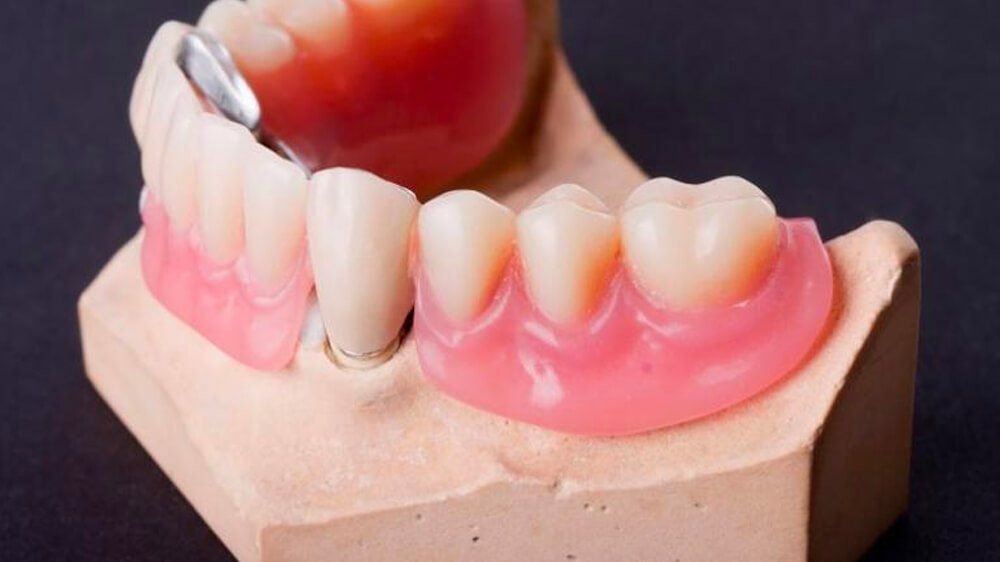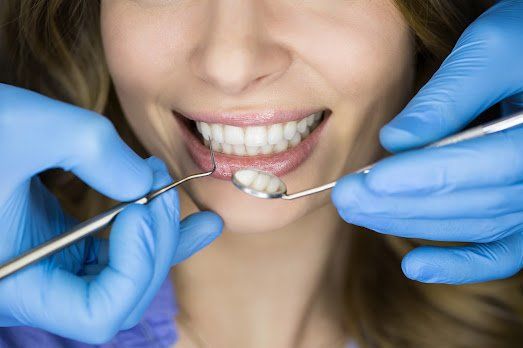What to Expect Before Getting a Dental Implant

Missing teeth are common, but many people still feel self-conscious if they are missing one or more. While dentures and dental bridges are common ways to replace missing teeth, some patients prefer a more durable option: dental implants. Like natural teeth, implants use the strength of the jawbone for support.
Before you get implants, however, you need to know a little more about what may happen before the procedure.
A clean, healthy mouth is a must
Tooth loss happens for many reasons, such as trauma. However, one of the biggest reasons for tooth loss is poor oral hygiene or other bad habits that impact your oral health, such as smoking. Poor oral hygiene and bad habits increase the risk of decay, which alone can lead to tooth loss, but decay isn't the only side effect.
If the decay is severe enough, your tooth can become infected. Root canal treatment can usually repair and save an infected tooth, but if your dentist has already repeatedly treated the tooth or the infection continues to return, the tooth may need extraction. If you continue bad oral hygiene, and decay and infections continue, your chances of getting gum disease increase. Gum disease devastates the gums and underlying bone, making your teeth less durable.
Gum disease is one of the leading causes of tooth loss, and replacing those teeth won't be easy. If you have uncontrolled gum disease, your dentist likely won't recommend a dental implant. This is because dental implants need a strong jawbone and healthy gums. If your mouth is too weak and unhealthy, the implant has a greater chance of failing.
A bone graft may be necessary
Depending on how many teeth are missing, how long they've been missing, and how strong your jawbone is, your dentist may suggest a bone graft. This is more common in patients with advanced gum disease because it affects the jawbone. However, even simply having a single missing tooth can cause the jawbone to shrink in that area.
If the area shrinks a little, your dentist may recommend a bone graft before the implant. During the procedure, the dentist uses bone from another part of your body, synthetic bone, bone from a donor, or bone from an animal and adds it to the jawbone. Whichever substance your dentist chooses, it will help regenerate tissue growth.
You may not need a bone graft if you choose a different type of implant. A bone graft is often needed for an endosteal implant, but a subperiosteal implant doesn't require a strong jawbone. However, this is because the implant sits under the gum and above the jawbone. This makes it less invasive but also less durable.
The sinus may need to be lifted
As long as your jawbone is strong, using implants for lower teeth isn't much of a problem. However, upper teeth can prove problematic because of your sinus cavities. The sinus cavities sit close to the upper teeth, and if they are too close, the implant will penetrate the sinus, leading to many complications.
This is usually a bigger problem if you've had missing teeth for a while. The bone loss makes the space between your teeth and sinus cavity even smaller. Of course, for some patients, the area is just naturally small.
During the sinus-lift procedure, the dentist cuts and raises the gum tissue, so they can see the underlying jawbone. The dentist then pushes up on the membrane lining of the sinus. To keep it up there, they use a bone graft to increase volume.
Dental implants can be a great way to replace your missing teeth and give you back a beautiful smile. However, a lot of prep goes into getting a dental implant, especially if you've had missing teeth for a while. If you would like to know more, contact us at Pittsburgh Dental Spa today.
Reviews from real patients:
Carmen up front is the nicest person ever! First time I met her she was running around doing many jobs and still being oh so sweet. Dr. Kelly is just as amazing! They truly make you feel comfortable and the atmosphere is amazing. Highly recommend!!
Brianna Bangs














